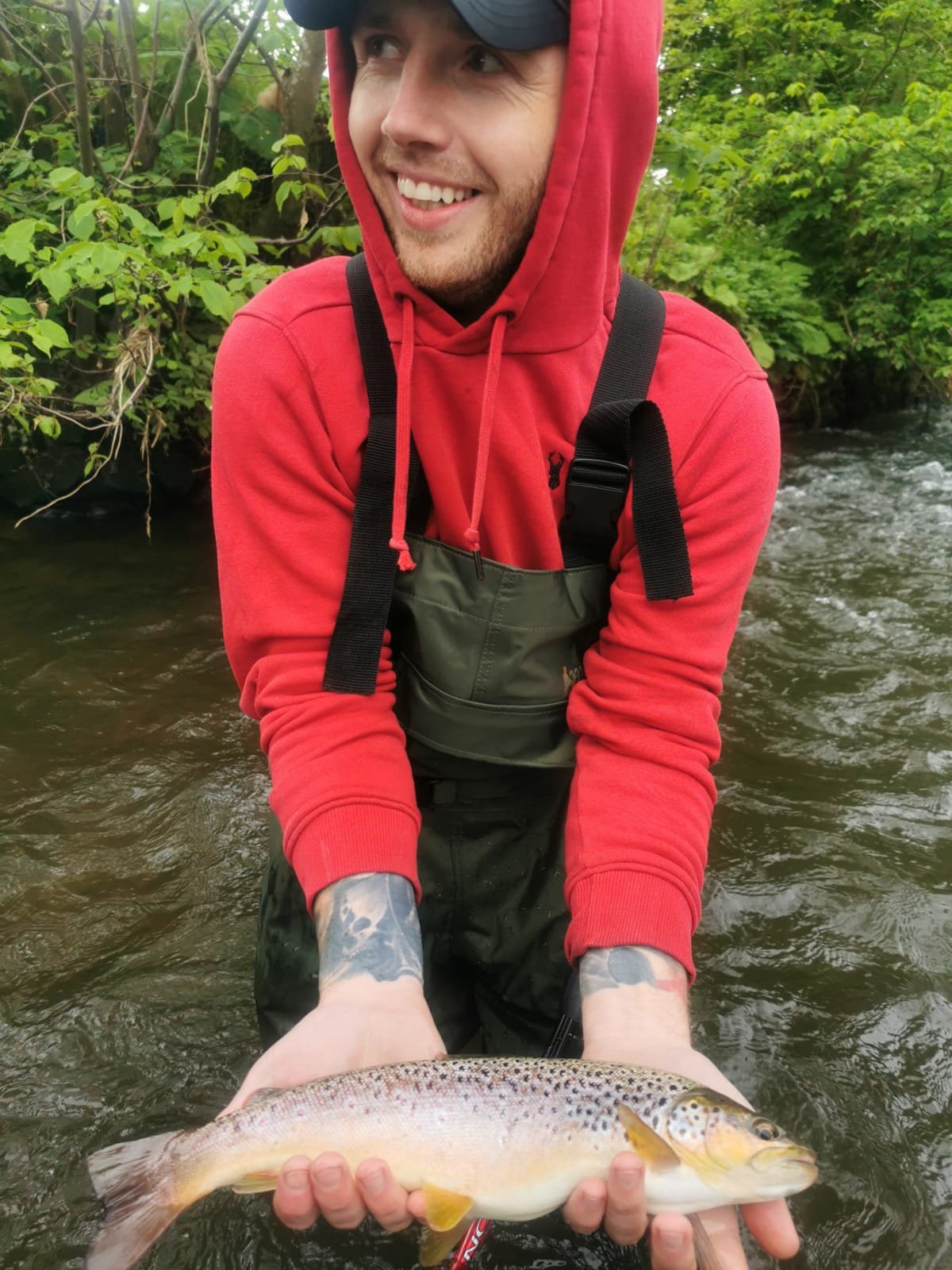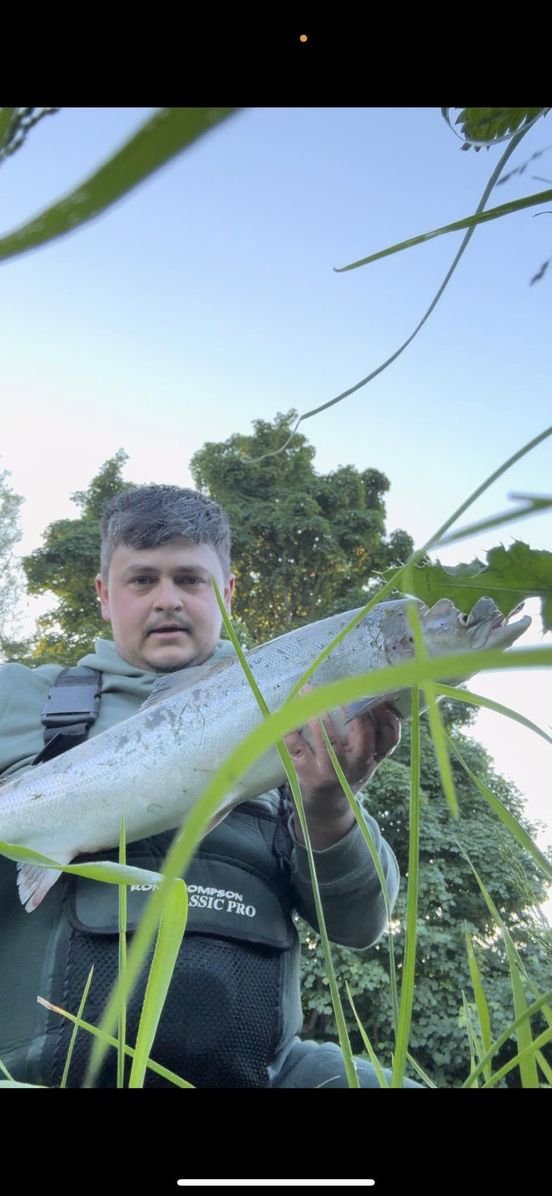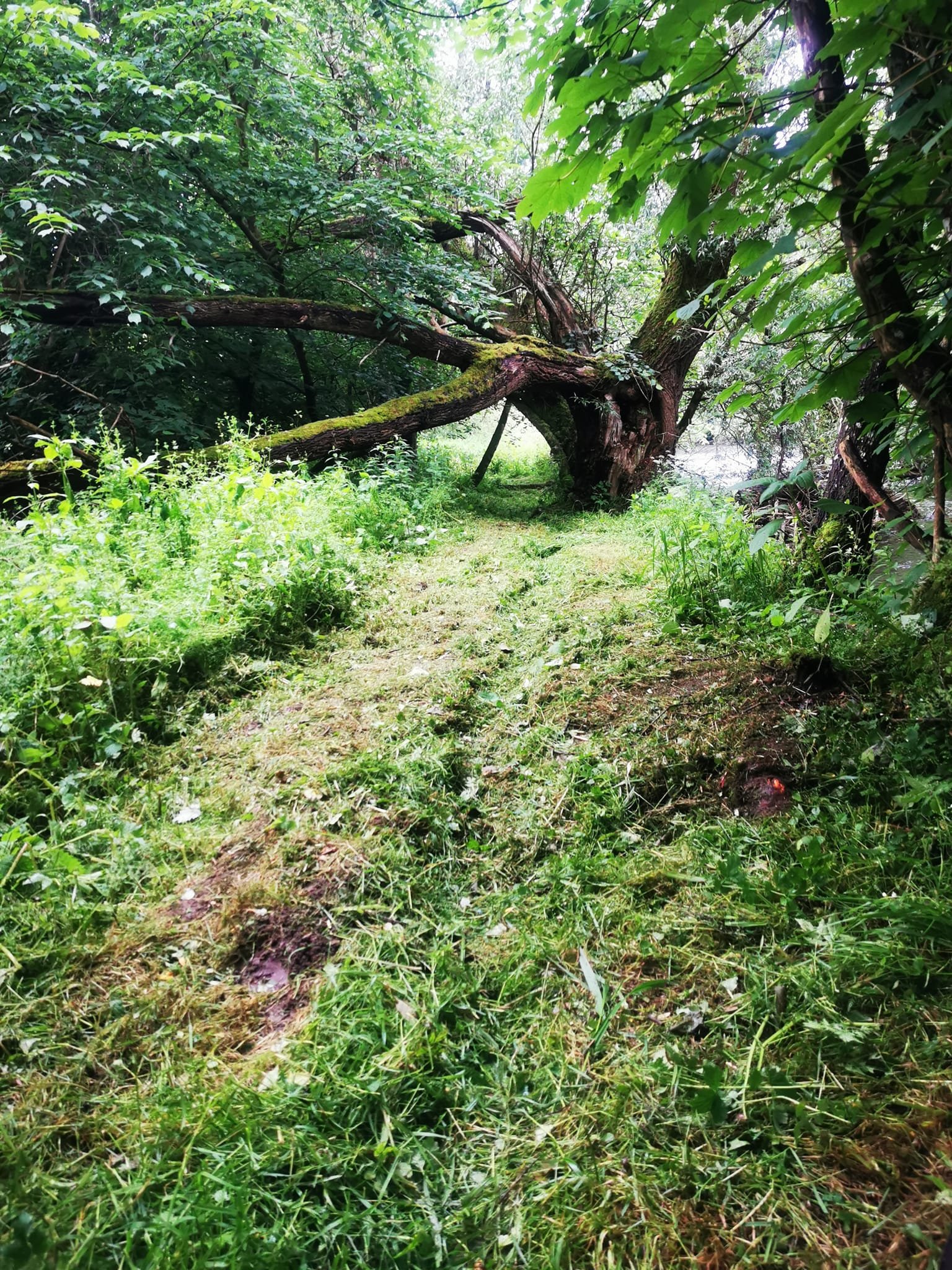How’s The Fishing?
Summer is here and we are pleased to say that the river is fishing well. After the very cold spell in May reports from members were gloomy. However, the river then sprang into life and some cracking brownies have been caught on a variety of stretches including upstream from the ABN factory, on the stretch known as ‘The Jungle’ (be prepared for undergrowth!) and downstream from Dairsie including the stretch downstream from the Pooch to the Tattie Hole. Things have chilled down again and wind conditions challenging but hopefully we will get some good days in!
Beautiful, well-conditioned Eden brownie caught on a nymph by new season ticket holder Jamie Lafferty.
We were also delighted to hear that a 12lb salmon was caught and several others reported hooking up but failing to land similar fish. A combination of high water after the rain at the end of May and big tides has certainly brought some good fish into the river. Those fishing the estuary have been less positive and have noticed a distinct lack of sea trout entering the river although there have been some caught further upstream. Hopefully this will improve, given the right conditions.
Fraser Stoddart with a cracking 12lb Eden salmon
Improving Access
Over the past few weeks committee members and other helpers have been working hard, strimming and doing river maintenance work to improve access for anglers. Paths have been cut from the Pooch to the Tattie Hole, at Newmill, at the Jungle and then downstream to Cupar sewage works and upstream from Pitlessie to Ramornie. More is planned upstream from ABN to Springfield. Members involved have also been clearing hogweed where it is safe to do so. Thanks to committee members Colin Jeffrey, Scott Macleod, Cammy Spears, Dave Steven, Billy Collins and Bill Wardlaw (and anyone else who joined in!) for this work.
River Eden Sustainability Partnership (RESP)
The club is continuing to work with RESP on their Nature Restoration Fund Development Project. This has 3 main strands:
Surveys of the whole catchment to identify Invasive Non Native Species (INNS)
Surveys of habitat to identify opportunities for improvement.
Community engagement to encourage volunteers to get involved in supporting the river.
You can find out more at www.riveredenfife.org.
Recent activities have included:
Riverfly Invertebrate Monitoring
Monthly kick samples of invertebrates are now being monitored by around 16 volunteers at 4 sites: Strathmiglo, Pitlessie, Cupar and Dairsie. It is hoped to add 2 more (Gateside and Newmill) as more volunteers get involved. EAA Secretary Michael Farrell also did a Riverfly workshop with Pitlessie Primary School children which seemed to go down well. Unfortunately we picked up some invasive American signal crayfish in the sample - several very small juveniles and one mature specimen - all dispatched, removed from the site and all equipment checked, cleaned and dried to prevent any spread.
INNS Training
Committee members have tried for many years to control some of the hogweed that plagues the river banks on several stretches of our leased water. This is a thankless task but important as it makes access to the river much safer for all. They have been doing the same again this year but gradually we have been trying to make a bigger impact.
Over the past few months, through a combination of the EAA Crown Estates Environment Grant and RESP Nature Restoration Funding, 6 volunteers have been trained up to control invasive plants like giant hogweed, Japanese knotweed and Himalayan Balsam. These plants shade out our native plants and loosen the soil making it prone to erosion. As you will know, giant hogweed is also a health hazard, causing burns and blisters to skin from contact especially with exposure to sunlight.
The aim is to follow the Scottish Invasive Species Initiative approach - working closely with landowners and contractors to fund a long-term catchment-wide strategy to eradicate these plants from source to sea. During July the newly trained volunteers will be carrying out a practice treatment on the Motray Water as it was the first survey to be completed. They will then do as much as they can to tackle other areas in the catchment. However, it will be NEXT year, hopefully with further funding, that we will be able to begin the catchment wide effort.
If you are interested in doing the training in Pesticide Application, RESP we can put you through the course free of charge. All we ask in return is a contribution to efforts to control these species in future years. The course is 2 days + a 2.5 hour assessment on another day.
Please get in touch here>> if you would like to do the training and we will get you signed up.









